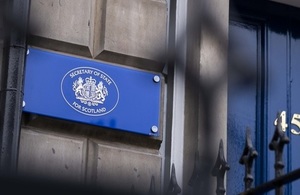Kate Bingham has today (16 May) been appointed chair of the UK’s Vaccine Taskforce – the group set up by the Government’s Chief Scientific Adviser, Deputy Chief Medical Officer, Business Secretary and Health Secretary to lead UK efforts to find and manufacture a COVID-19 vaccine.
This is a cross-government role and Kate Bingham will report directly to the Prime Minister.
Kate Bingham is a leading figure in the life sciences sector and her appointment will enable the Vaccine Taskforce to accelerate the development of a safe and effective vaccine, one of the long-term solutions to controlling the coronavirus pandemic and saving lives without social distancing or contact tracing in place.
Kate will co-ordinate the work already underway across Government, academia and industry to rapidly develop vaccines, and ensure that as and when a viable one becomes available, it can be produced in mass quantities and safely administered to the public – both in the UK and around the world.
The Taskforce is ensuring the work being done to find a vaccine in the UK complements and supports global efforts. The UK is a leader in the global response, committing £250 million to the international drive to develop a coronavirus vaccine through the Coalition for Epidemic Preparedness Innovations and hosting the upcoming global pledging conference for Gavi, the Vaccine Alliance, on June 4th.
Kate is uniquely qualified for the role, having worked in the biotech sector in the UK and internationally for 26 years – most recently as Managing Partner at SV Health Investor. Her work has led to the launch of six drugs for the treatment of patients with inflammatory and autoimmune disease and cancer.
Business Secretary Alok Sharma, who has been tasked with ministerial responsibility for the government’s work on vaccines said:
Discovering a vaccine is going to be vital in the plan to defeat COVID-19. Kate’s appointment as chair of the UK’s Vaccine Taskforce will give us exceptional leadership and focused energy as we seek to make this essential breakthrough.
We stand firmly behind the work of Kate and the Taskforce as they lead efforts to discover and mass produce a COVID-19 vaccine that could save millions of lives in the UK and around the world.
Chair of the Vaccine Taskforce Kate Bingham said:
Our immediate aim on vaccines is two-fold: to ensure everyone in the UK that needs to be vaccinated against COVID-19 can be as soon as practicable. Secondly, to ensure adequate global distribution of vaccines to bring the quickest possible end to the pandemic and the economic and social damage it causes.
Health and Social Care Secretary Matt Hancock said:
We are determined to harness the UK’s world leading scientists and institutions to discover and develop a vaccine to tackle this global virus.
Kate’s work will be critical to this effort. She has an excellent track record in the biotech industry, and brings vast experience working with drug and therapeutic discoveries which gives us a head start in finding and manufacturing a COVID-19 vaccine.
Government Chief Scientific Adviser Sir Patrick Vallance said:
All vaccines that come into development are long shots and to stand the greatest chance of making a crucial breakthrough we need we need great leadership. That is exactly what Kate Bingham will bring.
There are many vaccines worldwide in development and its vital that the UK continues to play its leading role in trialling potential vaccines and stands ready to get behind any viable vaccine candidates.
ENDS
Notes to Editors
The Taskforce is supporting efforts to develop a COVID-19 vaccine as soon as possible by providing industry and research institutions with the resources and support needed. This includes working with regulators and scaling up manufacturing, so that when a vaccine is identified, it can be produced quickly and at scale.
The Bioindustry Association is working closely with the Taskforce, bringing together a whole range of businesses keen to use their expertise to mass-produce vaccines, as soon as one is ready.
About Kate Bingham
Kate is temporarily stepping back from her full time role as Managing Partner at SV Health Investors, a leading international life sciences venture capital firm to take on this role as Chair of the Taskforce. At SV she is responsible for biotech investments and activities in the UK and serves or has served on the boards of companies in the UK, US, Ireland, Sweden and Germany. Her investments include small-molecule drug discovery and development projects, biotherapeutic development projects, and drug discovery platforms in a broad range of clinical areas.
Kate played a leading role in setting up the UK’s Dementia Discovery Fund (DDF) and serves on the DDF Investment Committee. The DDF was created by six leading pharmaceutical companies (Biogen, GSK, Johnson & Johnson, Eli Lilly, Pfizer, Takeda), together with the UK Department of Health and Alzheimer’s Research UK. Launched with initial commitments of £70m it now has £250m to invest in new potential disease modifying therapeutics for dementia.
Prior to joining SV, Kate worked in business development for Vertex Pharmaceuticals, a biotechnology company in Cambridge, MA and at Monitor Company, a strategy consulting firm. She has an MA in Biochemistry from Oxford University (First class) and studied on a Kennedy Scholarship at Harvard Business School (MBA Baker Scholar).

